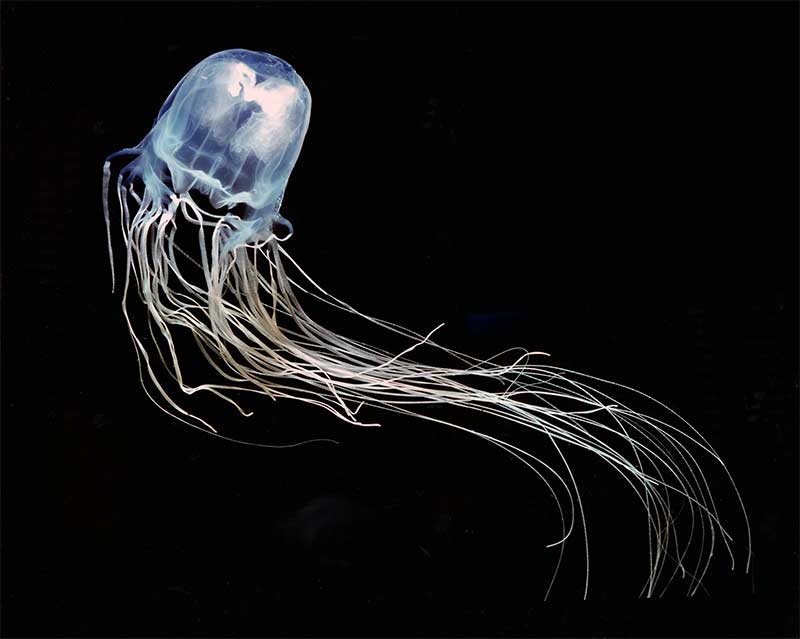On the 06. October is a 20 year old German on Koh Samui died after contact with a cube jellyfish. Her friend is still in the hospital. Only a few months earlier, a Thai in Haad Rin had been killed by a dice jellyfish. How big is the danger?
What are dice jellyfish?

Box jellyfish, (Cubuzoa), English box jellyfish, are cnidarians. There are around 50 different species. These jellyfish actively hunt for prey and are therefore more comparable in behavior to fish than to other types of jellyfish. Some types of box jellyfish are among the most dangerous marine animals, for example the “sea wasp” can kill a person within a few minutes. The dangerous poison of these jellyfish is found in their threads. Strictly speaking, it is a poison cocktail that is one of the strongest in the animal kingdom. The jellyfish uses the poison both for defense and to catch prey. The up to 60 tentacles of an adult animal can be up to 3m long. To date, little is known about the exact composition of the poison. Most box jellyfish live in shallow tropical and subtropical waters.
How can I protect myself from jellyfish in Koh Phangan?
There is no “protection” from jellyfish. Only wearing a wetsuit can prevent contact with the animals. The last two deaths occurred while swimming in the dark, where the chance of spotting the animals in time is of course even lower. You should definitely avoid swimming in the sea at night!
Although this was the third death in the Gulf of Thailand in a relatively short time, it is difficult to conclude. Last year, a French boy died after contact with a jellyfish Bottle Beach, a few months ago an 31 year old tourist from Bangkok after being in Haad Rin was attacked by a jellyfish. Now the death on Koh Samui. Nevertheless, serious injuries or deaths from dice jellyfish continue to be a rarity. Every year, there are only about 100 contacts with fatalities worldwide.
What to do with a jellyfish contact?
Should you come into contact with a jellyfish or observe this in other bathers, leave the water immediately or help the person to get to land.
Clean the areas that have come into contact with the jellyfish with vinegar. Vinegar is the only known remedy that can prevent other nettle cells on the skin from bursting. However, it does not relieve the poisoning that has already arisen, which can lead to burning pain, paralysis, muscle cramps, nausea and, in the worst case, cardiac arrest. To neutralize the poison, use hot Water! The poison becomes ineffective from temperatures of 42-45 degrees.
The person concerned should not move if possible, washing with sea water is not recommended in the event of contact with box jellyfish! Under no circumstances should bandages or the like be used and a hospital should be visited as soon as possible. Even if the pain is not too severe at first, this is advisable, as certain jellyfish poisons can delay the effect. So it is possible that the affected person's condition suddenly worsens even after 30-60 minutes.
